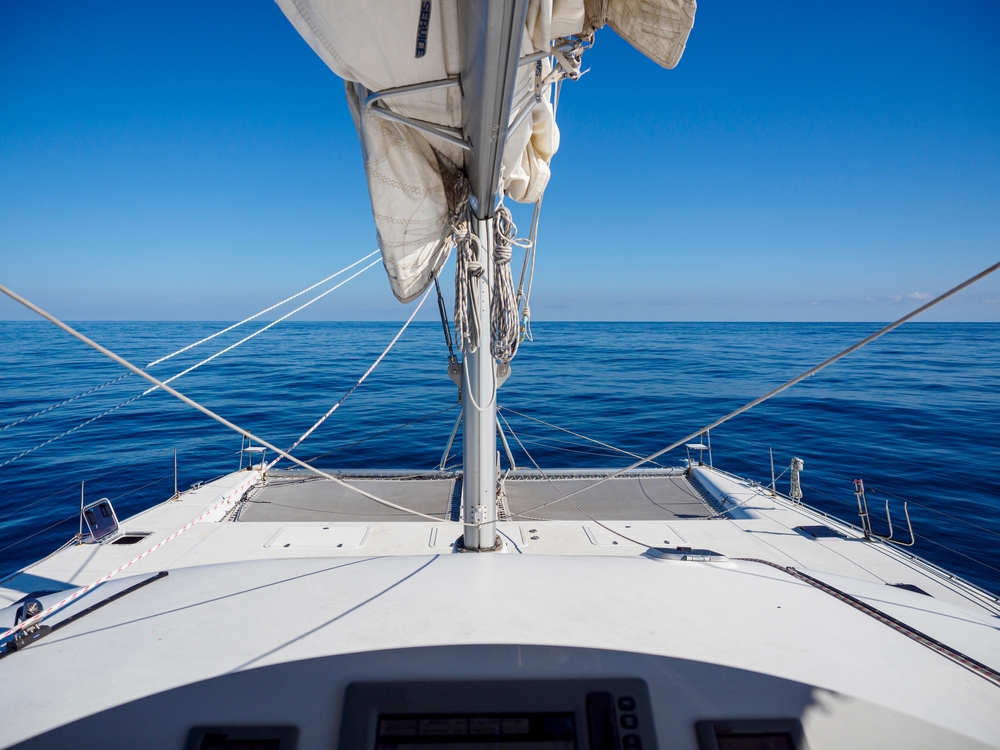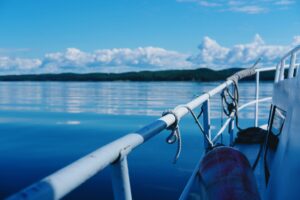
Even though you likely won’t spend time cruising on your boat during the cold Canadian winter months, you may not realize that there are winter risks that still require proper coverage to protect your investment. As a boat owner, it’s crucial to be aware of common boat insurance claims to help you prepare for unforeseen circumstances. Let’s explore these in more detail.
Why Boating Insurance is Important in the Winter
Boat insurance is essential throughout the year. Some risks and hazards in winter differ from those in the summer, leading to potential damages and losses. For example, winter weather conditions, like snow, hail, and ice, can cause significant damage to your watercraft, even if stored in a secure location.
Many marinas and storage facilities require boat owners to have insurance coverage before allowing them to dock or store their boats on their premises. Insurance coverage can bring you peace of mind, knowing you have protection against financial losses that may arise from incidents during the winter that may be out of your control.
6 Common Types of Boat Insurance Claims in the Winter
While most bodies of water are frozen during Canadian winters, some locations near the coast may prolong the season. If you happen to be out on the water during these traditionally colder months, you’re exposed to similar risks as in the summer. Many of the following common boat insurance claims apply specifically to watercraft hauled out for the season. Keep in mind that not all insurance companies will cover these claims, so it’s essential to check with them first before you submit:
1. Impact Damage
One of the most common boat insurance claims all-year round is impact damage caused by factors like rocks, deadheads, shoals, and other submerged objects. In areas of the country where boating can happen in the winter, you’re at risk of colliding with these objects, especially if there’s poor visibility and lots of debris from storms. No matter what season, it’s important to exercise caution when navigating waters and always keep a lookout for potential hazards.
2. Theft
Boats can be targets for theft, especially during the winter when they’re not in use. Thieves can steal specific parts or the entire vessel without proper security measures.
3. Vandalism
Watercraft stored in isolated or unsecured locations may also be vulnerable to vandalism. This includes graffiti, broken windows, and other acts that cause damage to the boat.
4. Fire
While uncommon, boats can catch fire during the winter for various reasons, including electrical issues, fuel leaks, or improper storage of flammable materials. Keep in mind that if you store your watercraft in an enclosed location, never use open flames nearby and ensure you remove all fuel or propane tanks before leaving it out of site for the season.
5. Freezing or Flood Damage
Boats that are not properly winterized can experience damage from freezing temperatures, ice, or heavy snow. The potential consequences of these events can include split pipes and cracked engine blocks. Additionally, melting snow or ice can lead to flooding and further issues for the structural integrity of your vessel.
It’s important to note that many boat policies exclude damage due to freezing, but it’s always a good idea to check with your insurance company for verification. Even then, you’ll likely need proof that you correctly winterized your boat for your claim to be successful.
6. Pest Damage
Boats stored in outdoor areas may be at risk for damage from rodents, birds, and other animals. This can include chewing through wires, nests made in engine compartments, or holes punctured in upholstery. During the winter, animals like mice or squirrels often look for warm shelters and may use your boat as an ideal nesting spot. Some steps to prevent critter damage include the following:
- Store your watercraft in a location that’s less accessible to animals, like a secure indoor storage facility
- Place traps or use repellents to keep animals away from the boat
- Remove all food and trash from the vessel before storing it for the winter
- Seal all openings or cracks and use tarps and covers to prevent pests from entering
Frequently Asked Questions
What should I do if my boat is damaged in the winter?
The first thing you should do is take steps to prevent further damage or loss. This may include moving the boat or covering it with more protective barriers. Then, contact your insurance provider to report the damage and begin the claims process. Keep in mind that not all situations are eligible for protection, so ensure you understand your unique policy limitations.
Do I need a separate winter insurance policy?
No, you do not need a separate insurance policy for the winter. However, reviewing your current coverage is vital to ensure it protects you from specific risks and hazards of the winter season.
How can I prevent my boat from winter damage?
Proper winterization and preventative measures are crucial to avoiding damage to your boat during winter. This includes draining the water systems, storing the vessel in a secure location, covering it properly, and maintaining the watercraft’s equipment and systems. Insurance providers are more likely to accept a claim if you can prove that you’ve done everything you can to prevent incidents in the winter.
Protect Your Watercraft with Boat Insurance
At Portside Marine Insurance, we have various customizable boat insurance policies to suit your budget and cruising style. If you want to learn more about our policies or need more information about insurance coverage in the winter, contact us today.





